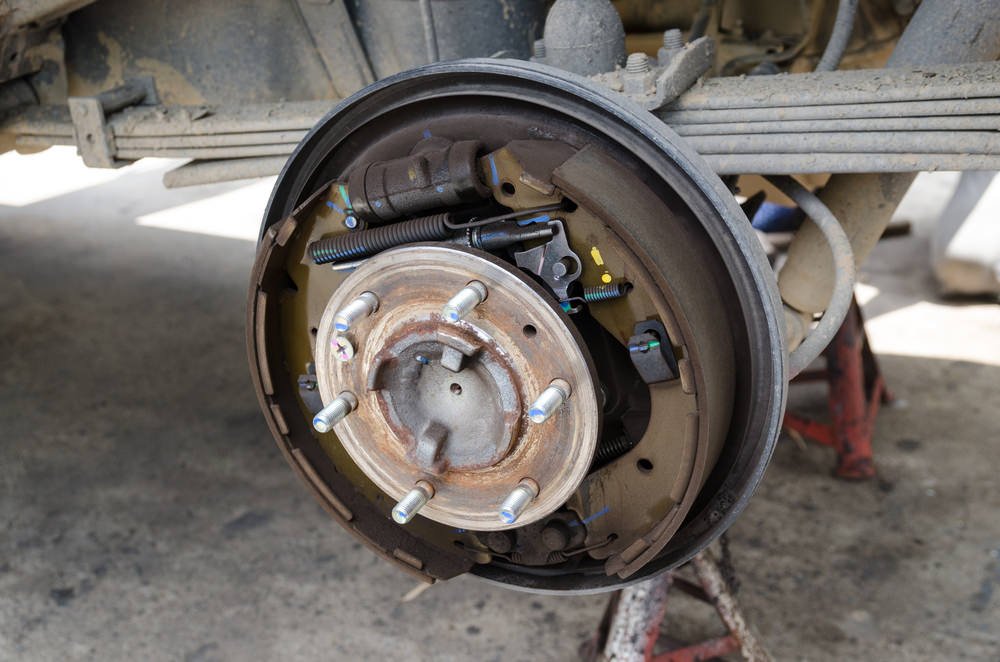Understanding torque parameters for brake caliper bracket bolts is critical for vehicle maintenance and safety. These guidelines specify the exact amount of force needed to secure the caliper bracket bolts. It contributes to the optimal operation of the braking system. What are torque specs for brake caliper bracket bolts?
Brake caliper bracket bolts are critical in ensuring appropriate brake alignment. This is necessary for consistent and dependable stopping power.
The precise torque specification helps to avoid over-tightening (which can cause damage) and under-tightening (which can provide insufficient brake performance). It also aids in the prevention of brake rotor warping or distortion caused by unequal pressure distribution.
If you understand, you will be able to apply the proper torque standards for brake caliper bracket bolts and brake system maintenance and repair.
What Are Torque Specs For Brake Caliper Bracket Bolts?

The torque specifications for brake caliper bracket bolts can vary based on the make and model of the vehicle. For exact torque values, reference the manufacturer’s literature. However, as a general rule, brake caliper bracket bolts are often torqued between 25 and 75 ft-lbs.
How To Find Exact Torque Specs For Brake Caliper Bracket Bolts?
Follow this guide to find how to find the exact torque specifications for brake caliper bracket bolts:
Read Owner’s Manual
The most basic and dependable technique is to reference the owner’s manual for your car. The manufacturer provides this paper, which contains important information about your car, including maintenance guidelines. Look for a section on brake system maintenance that includes recommended torque values for your individual make and model.
Consult Service Manual
If you’re doing more sophisticated maintenance or repairs on your vehicle, it’s worth investing in a service handbook. These instructions cover a wide range of components and operations, including torque standards. Official factory service manuals from the manufacturer, as well as aftermarket manuals such as Chilton or Haynes, are frequently available.
Contact the Manufacturer or Dealership
You should contact the vehicle manufacturer’s customer service department for more specific information. Based on your vehicle’s VIN (Vehicle Identification Number), they can give you the correct torque settings for your brake caliper bracket bolts. It’s a reliable strategy, particularly for newer models.
Search Online Resources
Torque specs for a wide range of automobiles are available from a variety of online resources. User-contributed information may be found on automotive forums, enthusiast websites, and databases. To ensure authenticity, use caution when using online sources and verify the information from numerous credible sites. Manufacturer websites and official repair guides are often the most trustworthy online sources.
Seek Professional Advice
You can consult a professional technician who specializes in your vehicle’s make and model. They have hands-on experience and access to large repair databases. Furthermore, they can advise you on the necessary torque values and even show the proper torquing method.
Brake Component Labels
Torque parameters may be embossed or labeled on the vehicle’s braking components in some situations. You can examine the caliper bracket and the box of replacement parts for any markings or labeling.
Read More: Why Is Your Toyota Not Recognizing USB?
Why Do I Need To Know About Torque Specs For Brake Caliper Bracket Bolts?
Knowing the torque specifications for brake caliper bracket bolts is important for several reasons:
Safety
Brake caliper bracket bolts that are properly torqued are critical for the safe operation of your vehicle. Under-torqued bolts may not firmly hold the caliper bracket in place, potentially resulting in brake system failure and reduced braking performance. Over Torqued bolts might harm the components, jeopardizing safety.
Brake Performance
The proper torque ensures that the caliper bracket is properly positioned and secure. It is required for the proper working of your vehicle’s brakes. Inadequate torque can cause uneven pressure distribution, brake pad degradation, and poor braking efficacy.
Preventing Damage
Over-tightening or under-tightening bolts can cause harm. Over-tightening can remove threads or distort the bracket, while under tightening might cause component failure. Following the torque specifications helps to avoid costly brake system damage.
Warranty and Liability
If your vehicle is still under warranty, failing to adhere to manufacturer-recommended torque specifications may terminate your warranty. Furthermore, in the event of an accident or a safety risk, incorrect maintenance methods may result in legal obligations.
Longevity of Brake Components
Using the proper torque values ensures that your brake components live longer. It helps to prevent early wear and tear, lowering the frequency of maintenance and replacement.
Consistency
When working on numerous vehicles or doing normal maintenance, consistency in torque application is essential. Knowing the correct torque levels helps you to apply the same standard to diverse automobiles. This is significant in professional automobile environments.
Professionalism
Understanding and adhering to torque specifications indicates your dedication to quality work and safety. It is a necessary component of professional vehicle maintenance and repair.
